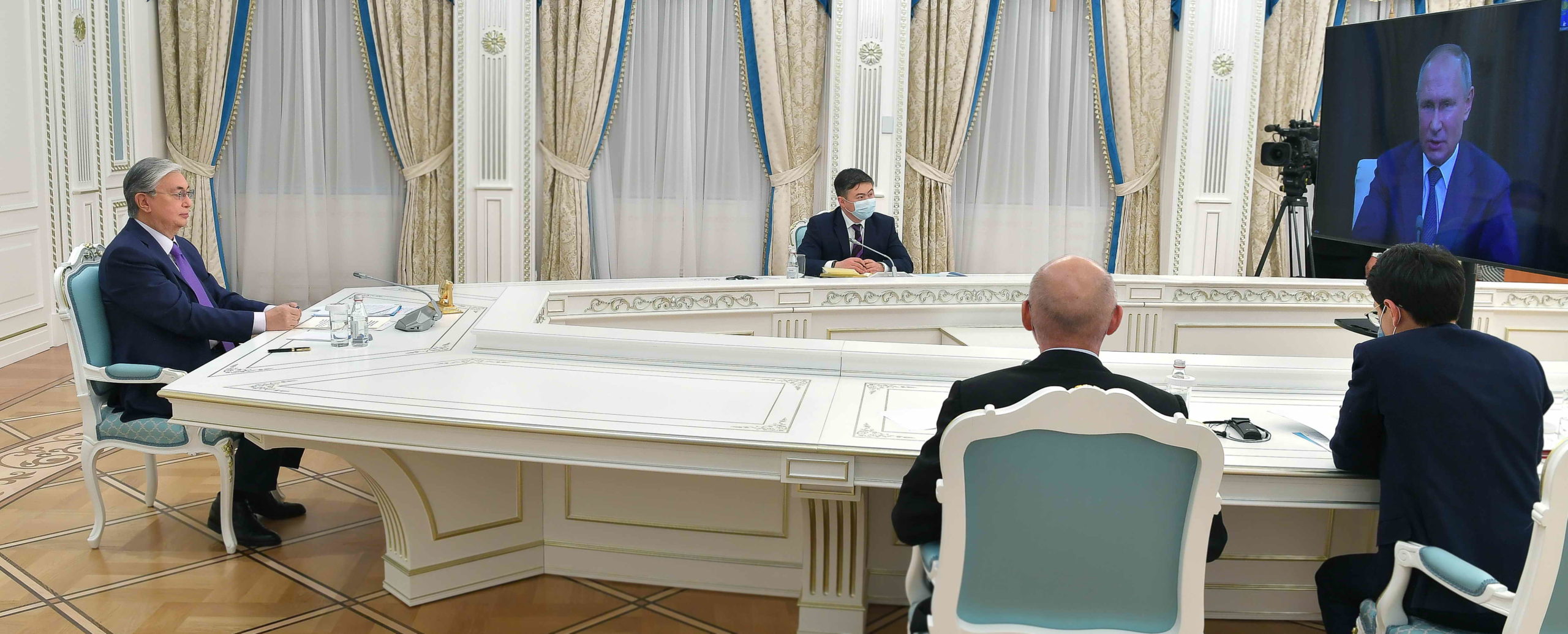NUR-SULTAN – Kazakh President Kassym-Jomart Tokayev participated in the Artificial Intelligence Journey conference that gathered over 28,000 participants from over 90 countries Dec. 3-5, Akorda reported.

During the meeting. Photo credit: Akorda press service
Artificial Intelligence Journey is a series of events focusing on artificial intelligence and data analysis and hosted by international companies, including Russian ones, working in AI technology development and application.
Addressing the session “Artificial Intelligence: Responsible Attitude Towards the Future” also attended by the Russian President, Tokayev said the world already lives in the age of artificial intelligence, machine learning and neural networks permeating different areas, including economics, security, medicine and politics. All people were quick to realize this after the coronavirus outbreak.
“This is a new world where new technologies lead us fast. What it will end up like, beautiful or frightening, what future we will leave to future generations depends on our common efforts, the efforts of engineers, IT specialists, economists and most importantly, politicians,” said Tokayev.
He noted the positive impact of artificial intelligence in healthcare, where AI-driven technologies can diagnose diseases and determine the outbreak of dangerous infections 18 months in advance allowing healthcare systems to prepare for such situations.
Tokayev said the development of artificial intelligence and big data analysis is one of the main development priorities for Kazakhstan. It is important for geographically large countries to minimize the digital divide within the country, he added, noting the importance of a digital agglomeration.
He also told the virtual gathering about Kazakhstan’s experience in incorporating digital technologies and expressed interest in applying information technologies to improve the public administration system and the quality of public policies as well as the role of digitalization and big data analysis in the formation and effective implementation of public policies.
Kazakhstan is currently working to introduce a Data Driven Government that will entail completely new approaches to real-time collecting and processing of big data.
He also spoke about the new Institute of Smart Systems and Artificial Intelligence established at Nazarbayev University, the country’s leading Western-style university, that will create a national artificial intelligence cluster with its own laboratory, data processing research center and artificial intelligence development science park in partnership with the World Bank
The use of digital technologies, however, is not an end goal, but a tool to improve the lives of people and the business environment.
“The state must work like a machine, that is true. But a listening state and its civil servants must have empathy, and spend more resources on interacting with citizens,” said Tokayev.
Tokayev also emphasized the risks in the development and introduction of artificial intelligence, including personal data protection. He also said artificial intelligence can be used in conflicts and future geopolitical confrontations.
He suggested adopting a memorandum that will prohibit the use of artificial intelligence technologies to the detriment of a person and violation of his or her rights. The document, he noted, will become a moral and ethical pact for a person and a mandatory requirement for artificial intelligence and its developers.
“Our task is to create measures to prevent such negative impacts. But as paradoxical as it may sound, the success of the new era will depend on the level of humanity that we will put into these new technologies. The thinking processes of machines and robots must develop in a constructive direction,” said Tokayev.

